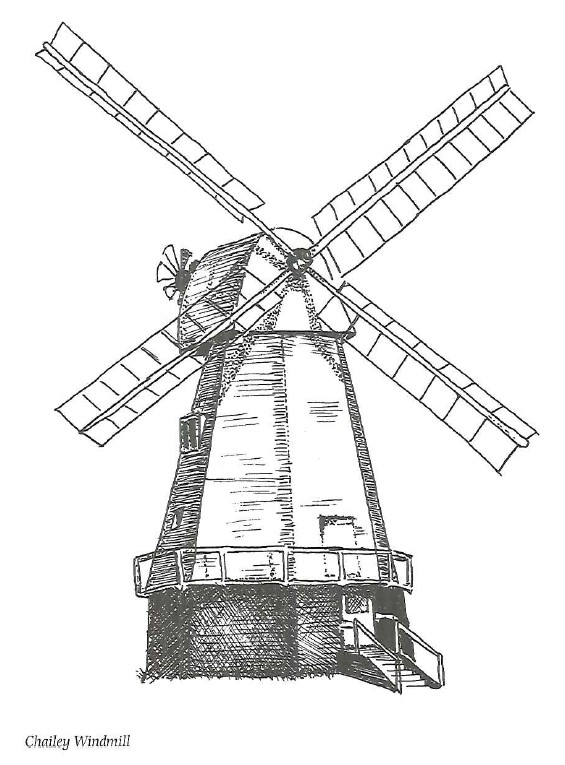The everyday gossip and anecdotes of ordinary folk in this village must have formed the backbone of A Dictionary of the Sussex Dialect, the definitive record of the county’s peculiarities of speech. It was compiled by the Reverend William Douglas Parish, vicar of Simpson as it was pronounced in the 19th century, who captured the words just before the dawn of a more cosmopolitan age when they became obsolete.
Among the fascinating collection of now forgotten words and phrases is a reference to the Sussex belief in fairies or farisees which endured deep into the 19th century. Parish himself was told and recorded the following yarn in Selmeston:
I’ve heard my feather say, that when he lived over the hill, there was a carter that worked on the farm along with him, and no one couldn’t think how t’was that this here man’s horses looked so much better than what any one else’s did. I’ve heard my feather say that they was that fat they couldn’t scarcely get about; and this here carter he was just as much puzzled as what the rest was, so cardinley he laid himself up in the stable one night to see if he could find the meaning an’t.
And he hadn’t been there very long, before these here liddle farisees they crep in at the sink hole; in they crep, one after another; liddle tiny bits of chaps they was, and each an ’em had a liddle sack of corn on his back as much as ever he could carry. Well: in they crep, on they gets, up they clims, and there they was, just as busy feeding these here horses; and prensley one says to t’other, he says, “Puck,” says he, “I twets, do you twet?” And thereupon, this here carter he jumps up and says, “Dannel ye,” he says, “I’ll make ye twet afore I’ve done wud ye!” But afore he could get anigh ’em they was all gone, every one an ’em.
And I’ve heard my feather say, that from that day forard this here carter’s horses fell away, till they got that thin and poor that he couldn’t bear to be seen along wid ’em, so he took and went away, for he couldn’t abear to see hisself no longer; and nobody aint seen him since.’
This compelling book reveals the Sussex character as well as the dialect. A woman asked for her opinion on a lately-deceased relative replied: “But there, I’ll give ‘er ‘er due, she ‘ad ‘er good faults as well as ‘er bad ones.’
The Domesday Book shows that Selmeston was one of the few villages with a priest and it has a rare possession in a 14th century church with wooden pillars, cut with eight sides and with carved capitals. The Rev Parish himself supervised the church’s rebuilding in 1866, having each stone marked and reset in its place.
The good vicar was not the sort to have been involved in shadier dealings at the church in the days when the Cuckmere valley was a hotbed of smuggling. These importers had a rendezvous in the churchyard and an old altar tomb served as a temporary hiding place for their booty. It is said that they never forgot to leave a bottle or two for the parson.
